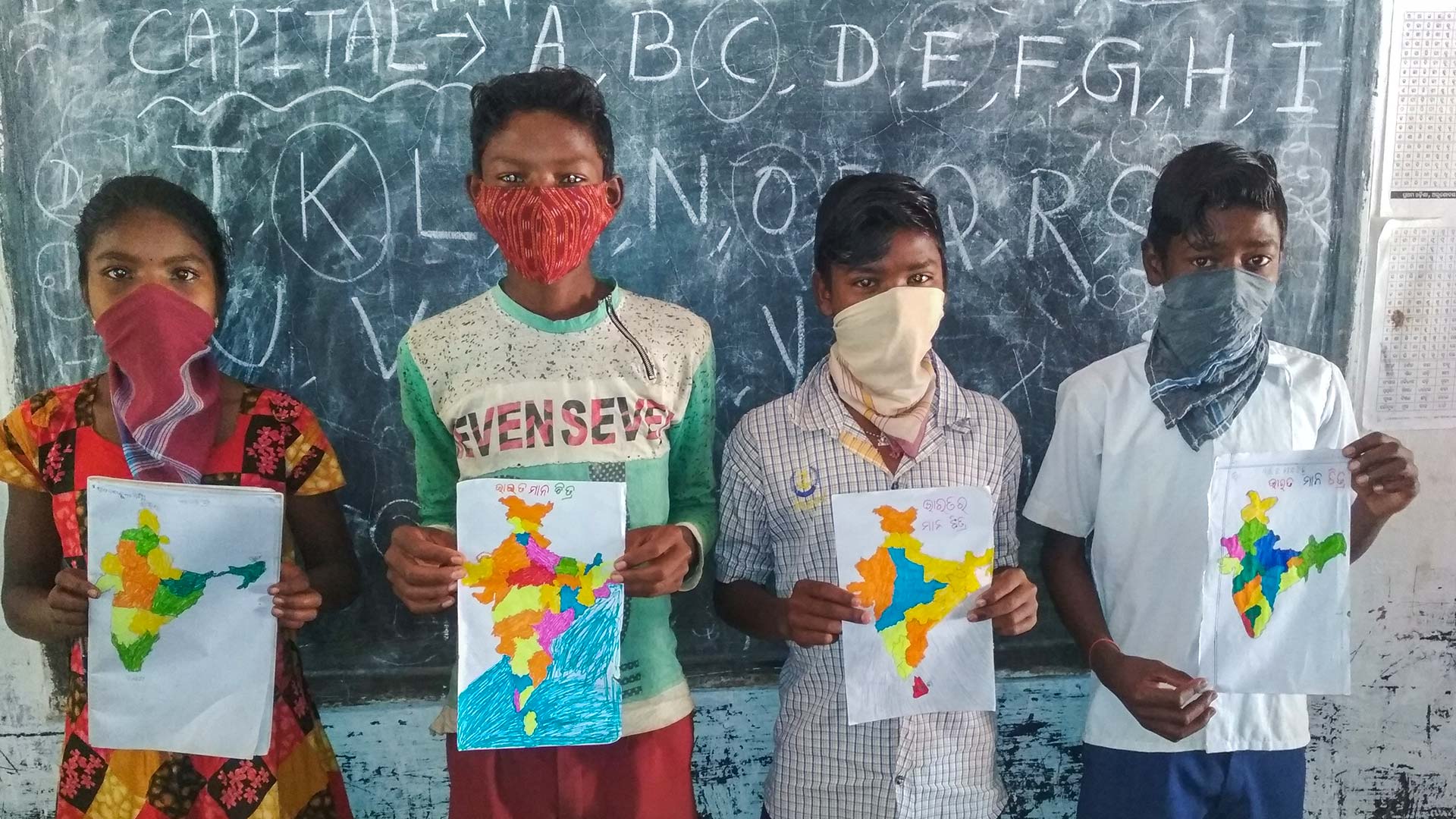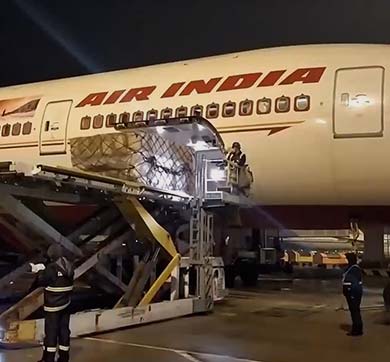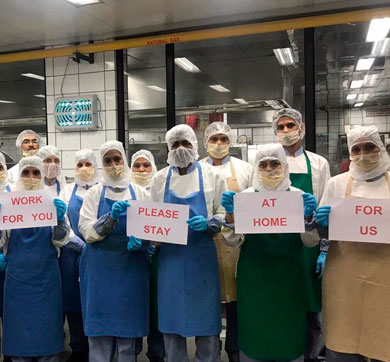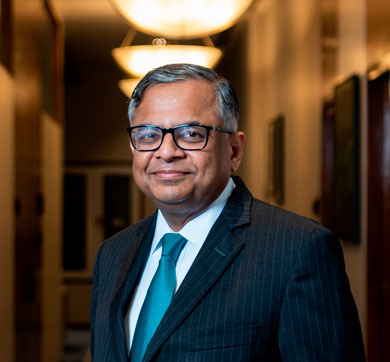April 2021 | 2070 words | 8-minute read
Pritilata, a grade V child from the Bathudi tribe in rural Odisha, could not write even a line when India went into a lockdown in January 2020 due to the Covid-19 pandemic. Just six months later, she was able to bring alive the sky, forest and pond around her through her writing.
Sanjana Majhi, the daughter of a goat herder and a daily wage labourer from the Kisan tribe of Odisha, has learned to construct a rain gauge and a wind vane, and even started plotting weather maps. All during the lockdown.
For Pritilata, Sanjana and the 35,000+ children who were part of Tata Steel’s 1000 Schools Programme, learning continued uninterrupted throughout the pandemic. As it did for the differently abled students of Tata Consumer Product Ltd’s (TCPL) Srishti initiative, for the municipal school students and underserved engineering and medical college aspirants supported by Tata Motors’ Vidyadhanam, for the students and teachers who are part of Titan Company’s skilling and training programmes, and for the thousands of students around the world who are part of Tata Consultancy Services’ (TCS) goIT and Ignite My Future in School programmes, among others.
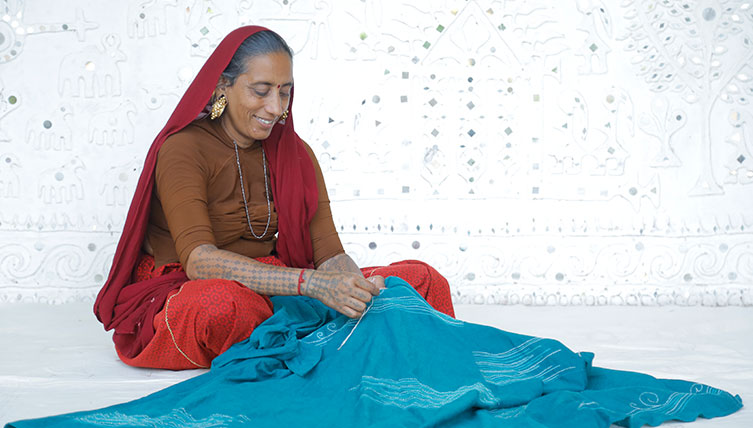
“Our underlying philosophy was that promises had to be kept,” said Sourav Roy, chief, Corporate Social Responsibility (CSR), Tata Steel, explaining the CSR strategy for FY21, a year complicated by the Covid-19 pandemic. “It resonated strongly from the board down to our last field worker that in a year when the need amongst communities is higher, our commitment — in terms of resources, time spent and sheer thinking for them — cannot be lesser. We did more, spent more and learnt more this year.”
He added, “We measure ourselves by the number of lives we directly and meaningfully touch every year. We wanted to reach 1.6 million people and didn’t want to reduce our ambition in a year when the need is the highest.”
Stepping up
This sentiment echoed across the Tata group. Company after company stepped up with new initiatives to tackle the community’s needs arising out of the pandemic without dishonouring existing CSR commitments.
TCS, with its presence in over 46 countries, started to see the impact of Covid-19 from December 2019 — much before India was hit by her own patient zero. They were focused on ensuring resilience for communities across the globe while also supporting a seamless transition to this new normal. “It was very clear from those early interactions that we needed to provide support on healthcare, continued access to education and look at broader community efforts to be agile and nimble in reacting to the arising needs,” said Balaji Ganapathy, global head of CSR, TCS. “While the safety and well-being of our employees and ensuring support to our customers was key, it was equally important to continue the mission critical services we are performing around the world. ... A lot of monetary resources and support went into Covid measures, but it wasn’t at the cost of discontinuing any of our strategic programmes.”
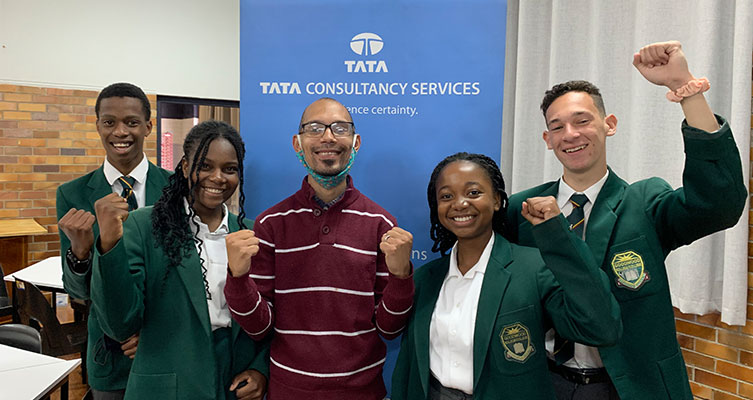
Alka Talwar, chief, CSR and Sustainability, Tata Chemicals, said, “This was the time when people really needed support, so we started looking at ways to continue what we are doing to ensure that the beneficiaries didn’t slide back in terms of the economic and social gains they had got before the pandemic.”
Vinod Kulkarni, head, CSR, Tata Motors said, “Lockdowns could not dampen spirits of our CSR participants and the team at Tata Motors. We responded with extraordinary interventions, enabling the stakeholders to achieve their aspirations. Our digital interventions were disruptive in nature and will help us deliver on a scale with far-reaching impacts.”
Dr Anurag Priyadarshi, manager, Global Sustainability, TCPL, added, “The Tata values of giving back to the community are vital for us; it is inbuilt in our DNA. What was more important than chasing numbers this year was to keep our community engagements going to ensure the health and well-being of the communities we serve. There were no budget cuts. In fact, we started more programmes due to Covid-19.”
Against all odds
- MANSI: In a regular year, Tata Steel’s Maternal and Newborn Survival Initiative covers 2,000+ high-risk cases. But by the first half of FY21, which corresponded with the national lockdown, the programme had identified at least 2,440 high-risk cases — the highest so far. Armed with MANSI’s ‘Operation Sunshine’ digital tracking system, which helps them monitor cases and creates a seamless channel of communication, the healthcare workers were also able to increase the percentage of cases addressed from 94% to 98%.
- goIT: At its core, TCS’ goIT helps students understand local problems and produce inventive technology-enabled solutions, which they then pitch before experts — at the school leaders, government or industry — who are part of TCS’s network of partners. TCS not only created quick project templates to pivot the programme from in-person to virtual, but also layered on unique offerings, including a monthly challenges initiative focused on the UN Sustainable Development Goals, in the processes expanding goIT’s reach to 33 countries.
- Vidyadhanam: Under its umbrella education initiative, Tata Motors partnered with the Jawahar Navodaya Vidyalaya (JNV), a pan-India system of schools for talented but underserved students, to coach engineering and medical college aspirants for JEE and NEET. When the residential coaching programme ground to a halt during the lockdown — forcing students to return to their homes, sometimes in the most isolated areas of the country — Tata Motors introduced a virtual coaching model with remarkable results. JNV Puducherry reported 89% and 100% success for IIT-JEE Advanced and JEE Mains, respectively, while JNV Palghar reported a 95% selection rate at NEET. The results prompted the JNV governing body to partner with Tata Motors to extend these virtual coaching classes for JEE and NEET across all 600 JNVs.
- Hu Pan Digital: Tata Chemicals trained 137 women’s self-help groups who were working on savings and credit, helping the groups transition from physical meetings to online financial transactions, wallets, etc.
- Srishti: Srishti enables learning and economic opportunities for differently abled youth in Munnar, Kerala. After a quick halt to recalibrate the hands-on initiative, TCPL introduced a system to have the raw material delivered to the homes of the beneficiaries. The new system allowed them to work from the safety of their homes; the finished work was then collected by a partner organisation.
- WATSAN: Titan’s water and sanitation programme in Uttarakhand ran without a break during the pandemic. Eight WATSAN projects, reaching 500 households, were completed by the end of the year.
How they did it
The first step towards this, according to NE Sridhar, head, Corporate Sustainability, Titan Company, was ring-fencing existing initiatives from Covid distractions. “For example,” he explained, “our flagship programme Titan Kanya focuses on the girl child. Prolonged absence from the engagement or schools can make them vulnerable to dropping out and even abuse. It was important that we ring-fence them with some initiatives. We extended Covid support not only to the beneficiaries but also their families and communities, ensuring that the family and community welcomed the programme managers to continue the programmes.”
The second was to shore up grassroots partnerships. “When the world around us was looking at cutting salaries, we promised to honour the salaries of those who work on behalf of us even when the programmes were not on due to the lockdown,” said Mr Sridhar. “This was the biggest reassurance we could give; it enabled them to come up with innovative solutions to deliver the programmes.”
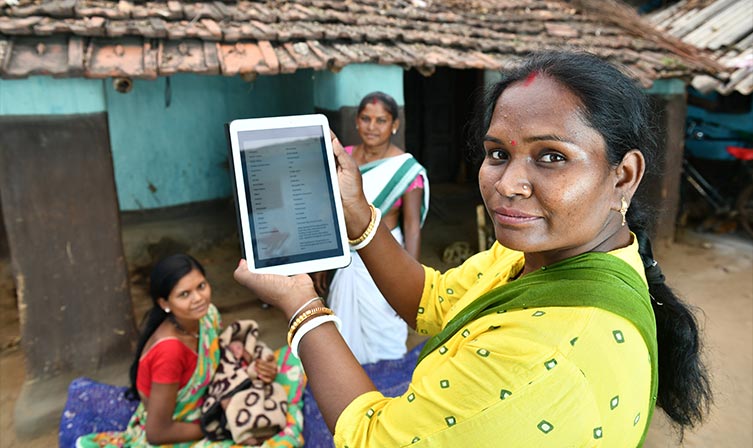
“The value of teamwork,” noted Dr Priyadarshi, “emerged as the biggest lesson. We realised that we could only overcome the challenges as a team and with our partnerships.”
The third was to overcome the challenges presented by the need for an immediate digital pivot due to the mobility restrictions of the lockdown and the reality of India’s yawning digital divide.
Digital darkness
Tata Steel, for instance, discovered that only 14% of the children covered by its 1000 Schools Programme and other learning programmes in Odisha and Jharkhand had smartphone access. While they were able to pilot a digital Lockdown Learning Programme by early April 2020, it wasn’t enough. “Everything that is happening on the digital front is absolutely fantastic and full of potential, but we have to come out of our mindset of just going digital,” observed Mr Roy. “We have to combine it with a physical component till there is larger digital coverage.” Tata Steel mobilised nearly 4,000 teachers — travelling on cycles, scooters, and even on foot at times — to support children in digitally dark dispersed habitations during the lockdown.
In Mithapur, Gujarat, Tata Chemicals faced similar challenges with Okhai, which had onsite stitching units. “Digital can become another way of dividing people,” said Ms Talwar. “It is about access. Even if everything starts moving to digital, the issue remains the same. If you don’t have access, there will be a divide of opportunities. Therefore, bridgital solutions will become the norm. You will use digital to extend your reach and social/physical contact to bridge the last-mile gap.”
This understanding of access darkness prompted a mix of bridgital and other innovative solutions that allowed the companies to recalibrate their programmes with agility. In several cases, the pivot from in-person to virtual took place within a week to 10 days, Mr Ganapathy pointed out, adding, “We leveraged this time as an opportunity to reimagine our programmes through a digital-first approach, to democratise access. In some cases, significant scaling has happened during this time.”
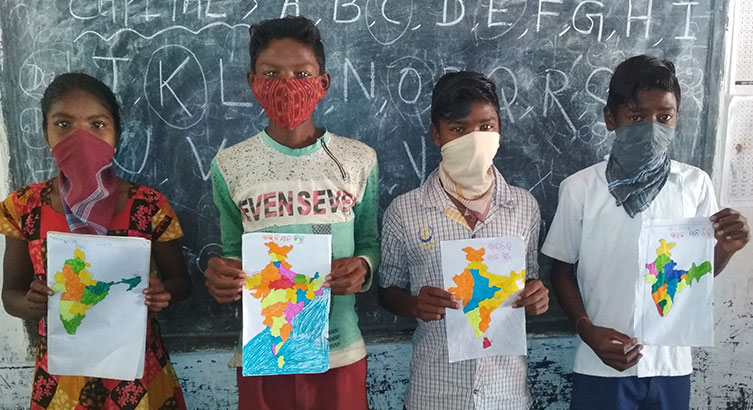
Do better, do more
For instance, with TCS’ Youth Employment Programme for rural colleges, where computer and internet access were limited, the company changed its model of engagement so that even students using regular phones or smartphones with low bandwidth could connect to mentors and coaching sessions. The digital pivot enabled volunteers from every part of the country, even other parts of the world, to join in. The challenge of mobility became an opportunity to tap into a larger pool of volunteers, increasing one-on-one engagement and learning effectiveness.
Tata Chemicals converted its Okhai online platform into a marketplace to help other artisans; the move increased the number of artisans connected to the platform from 2,500 to about 25,000.
Tata Steel brought another 1.25 lakh children into the Lockdown Learning Programme by January 2021, quadrupling its reach since the start of the pandemic. They were also able to expand Samvaad, a platform for the tribes of India and beyond. In a normal year, the event hosts 1,500 participants in Jamshedpur, but the bridgital version in 2020 drew 10,000 participants from 30 states and union territories and four countries. “In terms of continuity of impact,” said Mr Roy, “we have done better than previous years. We will exceed the target of reaching 1.6 million lives this year.”
In some cases, companies even transformed the challenges of the pandemic into an opportunity to accelerate ongoing projects. Titan hastened the implementation of technology for its Kanya programme and completed the digital transition of the Titan LeAP skilling centre in Chennai. Tata Chemicals saw its Holistic Nutrition Programme become more robust, while Tata Motors made its Vidyadhanam remedial and coaching lessons initiatives more effective through an app that makes learning agnostic of the time a student gets access to a device.
“We were cognizant that there will be a marginal dip in outcomes as we transition from physical to digital, but in the long-term, it will have a multiplier effect on outcome,” said Mr Kulkarni. “With digital, even students in slums can have access to the same kind of content as children living in high rises. We see it as an opportunity. We see it as the best period for us to innovate, revisit all that we were doing and deliver at a lower cost.”
Mr Ganapathy called it the catapult effect: “That foundational effort is being put in now, and our outlook is that we will build on these to enhance the outcomes for the communities in the coming year and much beyond that. Once the pandemic ends and the mobility and other challenges are behind us, by leveraging this foundational effort we can leapfrog into the future to significantly scale the programmes.”
—Monali Sarkar




